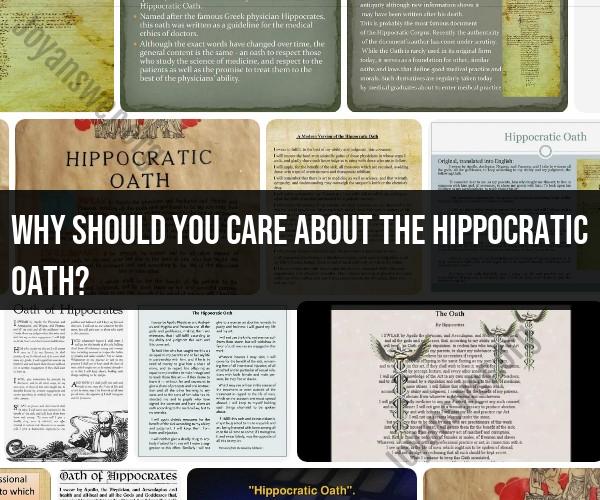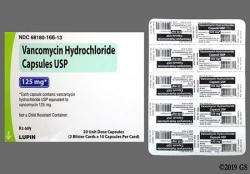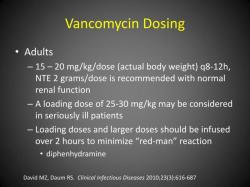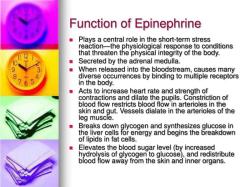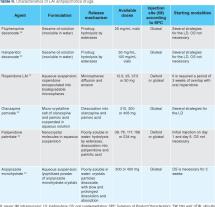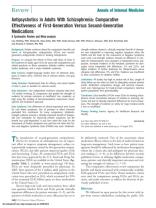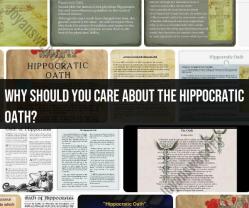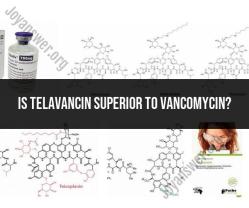Why should you care about the Hippocratic Oath?
The Hippocratic Oath holds significant importance in the field of medicine and medical ethics for several reasons, and caring about it is essential for both healthcare professionals and society as a whole. Here are some reasons why the Hippocratic Oath is significant:
Ethical Foundation: The Hippocratic Oath serves as one of the foundational documents of medical ethics. It outlines key ethical principles and values that guide the behavior and decisions of healthcare professionals. Caring about the oath means recognizing the importance of ethical conduct in the practice of medicine.
Patient Welfare: The primary focus of the Hippocratic Oath is the well-being of patients. It emphasizes the physician's duty to prioritize the best interests of the patient above all else. By adhering to this principle, healthcare professionals ensure that patient welfare remains at the forefront of medical practice.
Confidentiality: The oath emphasizes the importance of patient confidentiality. Caring about the oath means respecting patient privacy and confidentiality, which is crucial for building trust between healthcare providers and patients.
Do No Harm (Non-Maleficence): The principle of "do no harm" is a core element of the Hippocratic Oath. It underscores the obligation of healthcare professionals to avoid actions that could harm patients. This principle serves as a critical ethical guide in medical decision-making.
Beneficence: The oath encourages healthcare professionals to actively seek the benefit of their patients and promote their health. Caring about the oath means striving to provide the best possible care and treatment to patients.
Informed Consent: The concept of obtaining informed consent from patients before medical procedures or treatments is rooted in the Hippocratic Oath. Caring about the oath involves respecting patients' autonomy and their right to make informed decisions about their healthcare.
Professionalism: The oath underscores the importance of professionalism and ethical behavior among healthcare professionals. Caring about the oath means upholding the highest standards of professionalism in the medical field.
Historical Significance: The Hippocratic Oath has a long history dating back to ancient Greece and is considered one of the earliest expressions of medical ethics. Caring about the oath acknowledges its historical significance and the enduring relevance of its principles.
Public Trust: Adherence to the principles of the Hippocratic Oath helps maintain public trust in the medical profession. Patients trust that healthcare providers will act in their best interests, and caring about the oath is essential for preserving that trust.
Legal and Ethical Framework: In many countries, elements of the Hippocratic Oath are incorporated into medical ethics codes and legal frameworks governing healthcare practice. Caring about the oath ensures compliance with these regulations.
In summary, caring about the Hippocratic Oath is essential because it upholds fundamental ethical principles in medicine, places the welfare of patients at the center of medical practice, and helps maintain trust between healthcare professionals and the public. It serves as a reminder of the moral and ethical obligations that healthcare providers have in their roles, and it guides their conduct in delivering compassionate and ethical care.
The Significance of the Hippocratic Oath in Medicine
The Hippocratic Oath is one of the oldest and most important documents in the history of medicine. It is a set of ethical principles that physicians have sworn to uphold for over 2,500 years.
The Hippocratic Oath is significant because it emphasizes the importance of the physician-patient relationship and the physician's responsibility to act in the patient's best interests. The oath also emphasizes the importance of confidentiality and the physician's duty to do no harm.
Ethics and Medicine: Why the Hippocratic Oath Matters
Ethics is the study of right and wrong, good and bad. It is important for physicians to be ethical because they have a great deal of power and responsibility. Physicians make decisions that can have a profound impact on their patients' lives.
The Hippocratic Oath provides a framework for ethical decision-making in medicine. The oath helps physicians to remember their obligations to their patients and to society.
Contemporary Relevance of the Hippocratic Oath in Healthcare
The Hippocratic Oath is still relevant today because the ethical principles that it espouses are timeless. Physicians still have a responsibility to act in their patients' best interests, to maintain confidentiality, and to do no harm.
The Hippocratic Oath also helps physicians to navigate the complex ethical challenges that arise in modern healthcare. For example, the oath can help physicians to make decisions about end-of-life care, genetic testing, and the use of new technologies.
Here are some examples of how the Hippocratic Oath is relevant in contemporary healthcare:
- A physician is faced with a decision about whether or not to use a new and experimental treatment on a patient. The physician must weigh the potential risks and benefits of the treatment and make a decision based on what is in the patient's best interests.
- A physician is treating a patient who is terminally ill. The physician must respect the patient's right to make decisions about their own care, even if the physician disagrees with the patient's decisions.
- A physician is treating a patient who is at risk of harming themselves or others. The physician must balance the patient's right to confidentiality with the need to protect the patient and others from harm.
The Hippocratic Oath is a valuable guide for physicians in making ethical decisions in contemporary healthcare. The oath helps physicians to remember their obligations to their patients and to society.
